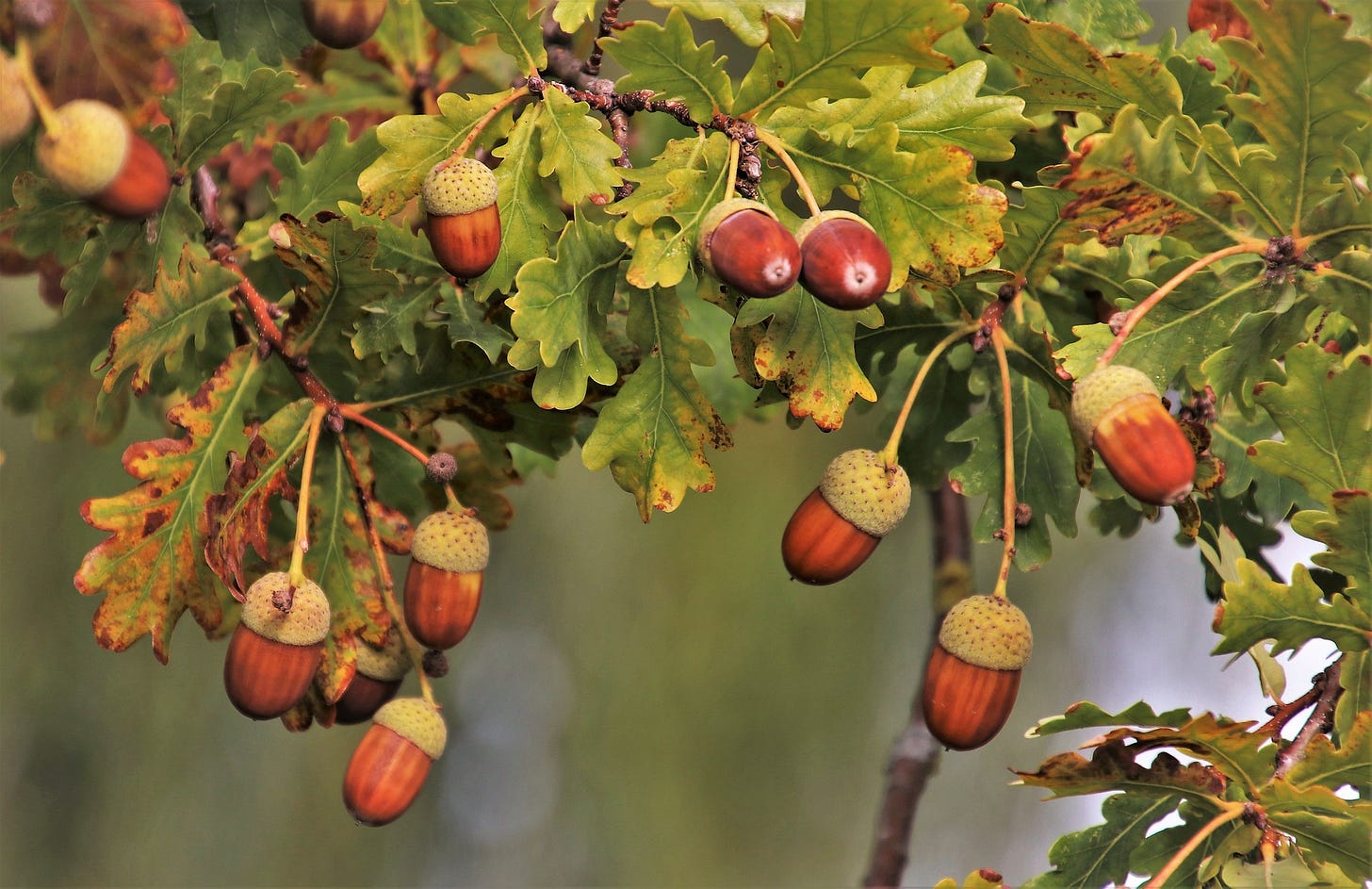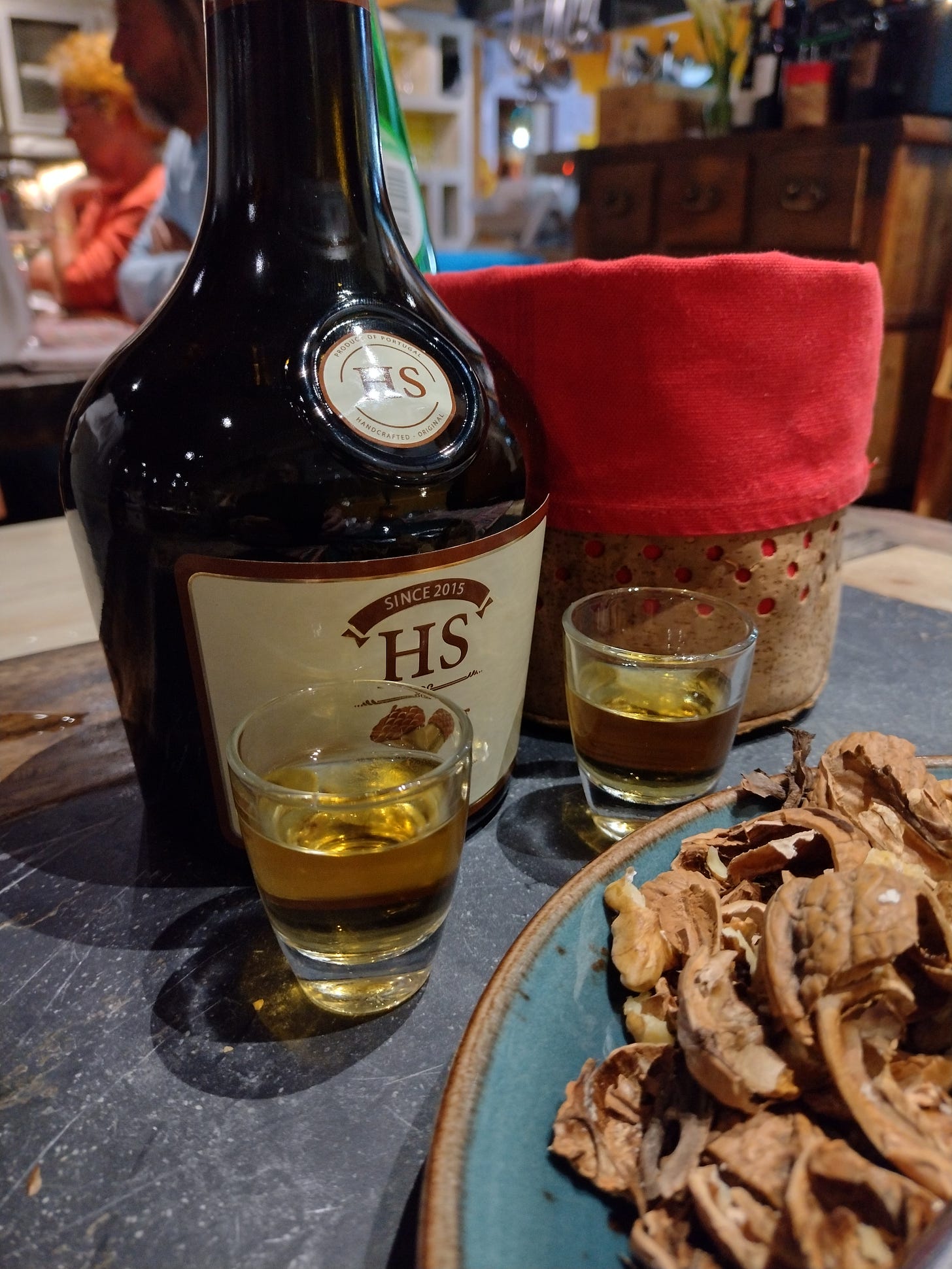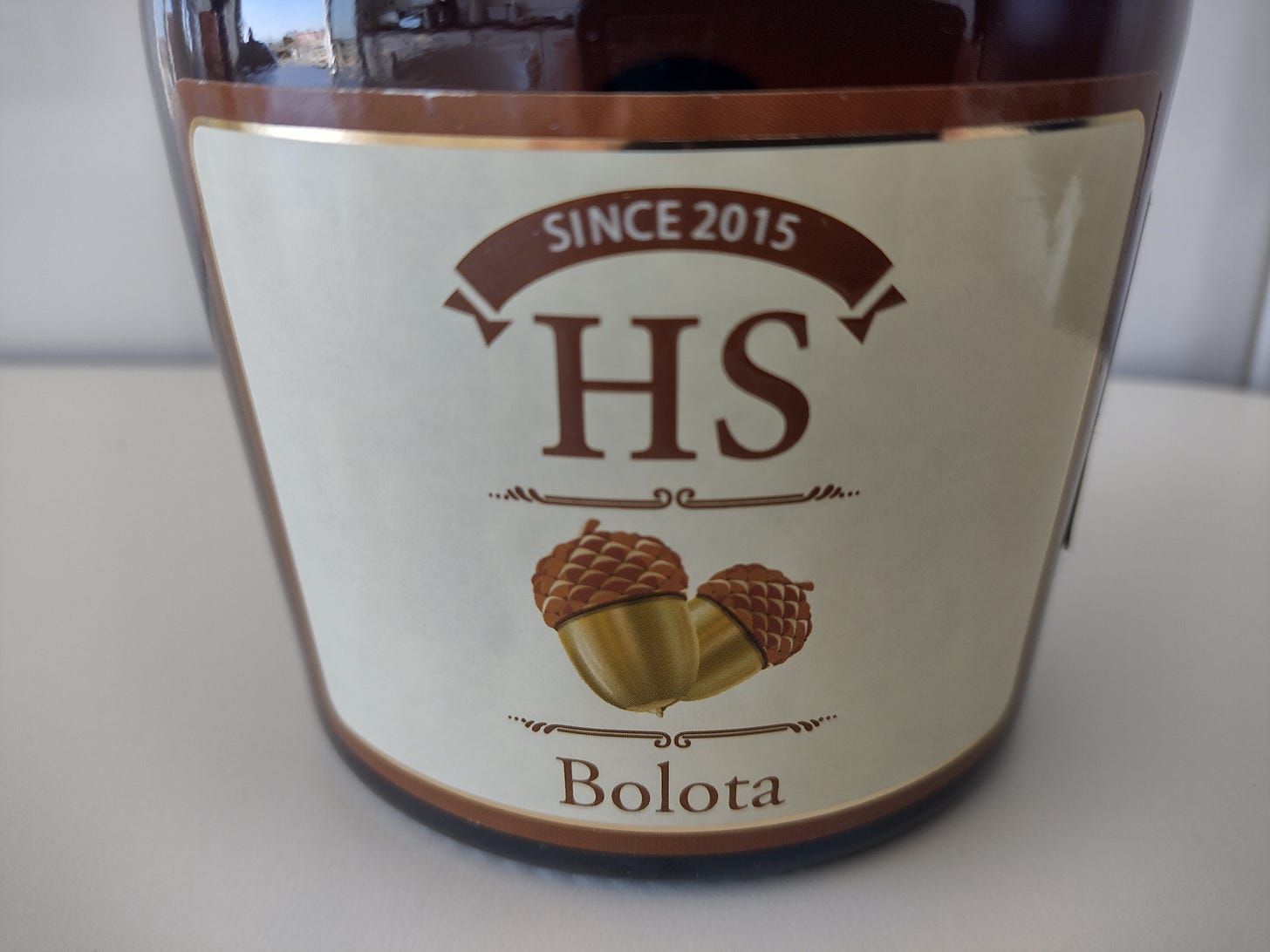Portuguese Bolota
Nectar from the mighty oak tree

While visiting Vila Nova de Milfontes on the Alentejo coast, we enjoyed dinner at Tasca do Celso, just a short walk from the guest house we were staying at. After a delicious dinner, our waiter brought us a complimentary basket of walnuts in the shell along with a nutcracker so that we could crack open the fresh walnuts. The waiter also brought over a bottle of a liqueur we had never seen or heard of and poured two shot glasses of the acorn nectar known as Bolota. This was a new experience for us!
What it is.
Bolota is a traditional Portuguese liquor that is made from acorns, the fruit of oak trees. Oak trees have been used for centuries in Portugal and other Mediterranean countries as a source of food and drink. Bolota, which is also known as aguarrás de bolota, is a strong alcoholic beverage made by fermenting and distilling the juice of acorns.
The history of Bolota dates back to the Middle Ages, when the Moors introduced the art of distillation to the Iberian Peninsula. During this time, the Moors also cultivated and processed acorns, which were a staple food for their livestock.
Over time, the Portuguese adopted the art of distillation and began using it to produce a variety of alcoholic beverages, including Bolota.
How it’s made.
This is a labor-intensive process requiring several steps. The first step is to harvest acorns from oak trees, which typically takes place in the fall. The acorns are then dried, shelled, and ground into a fine powder. The powder is then mixed with water and allowed to ferment for several days. During the fermentation process, the natural sugars in the acorns are converted into alcohol.
After the fermentation process is complete, the liquid is distilled in a copper still. The resulting liquid is a clear, colorless spirit. Bolota is typically aged for several years in oak barrels before being bottled.
What it tastes like.

In the glass, the color is almost clear with amber overtones. There are aromas of spice and vanilla. It has nutty and honey-like tastes, similar to a smooth whiskey but with a more unique flavor that must be derived from the acorns. The drink was served to us neat, and at room temperature. We were told that it can also be served cold. The label on the bottle indicated an 18 percent alcohol content. Both Paul and I enjoyed drinking this liqueur and it was the perfect digestif after a hearty meal.
An artisanal product.
With its rich history, labor-intensive production process, and distinct taste makes Bolota a true artisanal product. While Bolota is not widely available outside of Portugal, it is an important part of the country's culinary heritage and is enjoyed by locals and visitors alike.
If you live in Portugal, or are visiting, you’re more likely to find Bolota served in restaurants in the Alentejo or in the Castelo Branco region, two areas where the beverage is produced. I did, however find Bolota at our local Auchan store. In the search bar, type in Bolota and you’ll see the HS Brand, which is the brand we had at the tasca, and the brand we purchased to enjoy at home. The online Portugal Vineyards also sells the Regionalarte brand. I’m sure there may be other wine and spirits shops in Portugal that sell it as well. In any case, if you enjoy liqueurs, give Bolota a try!
Thank you for reading Our Portugal Journey. This blog is a subscriber supported publication but has no paywall – in other words, you can subscribe for free and receive all the content. However, if you find my content valuable, please consider becoming a Supporting Subscriber for a nominal fee either on a monthly or annual basis right here. Just want to buy me a glass of wine? You can do that here.
A special thank you to Susan M. for supporting Our Portugal Journey through Buy Me a Coffee. I truly appreciate it!
Until next time…
Obrigada!
Carol.





One of our favorite towns. We have spent many months, year after year, sleeping in our van along the entire Costa Vicentina. That is a great restaurant. nothing like a bit of Bolota after a meal. I have a fun YouTube video that I did there during the pandemic when I was out of work.
Obrigada!
Love the stuff! Bought a bottle at the Goat Festival in Azinhal and it is a special treat